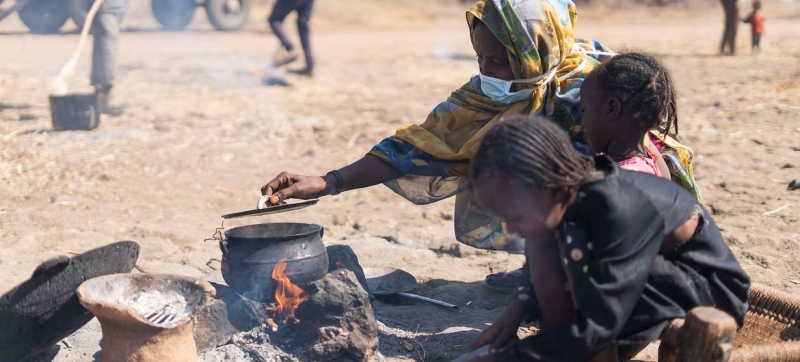
A woman cooks in a settlement for internally displaced persons in Sudan. UN Human Rights Office: Sudanese people facing one of the world’s worst crises Human Rights
Parties to the conflict in Sudan continue to violate human rights and commit abuses without control, Deputy High Commissioner for Human Rights Nada Al-Nashif told the Human Rights Council on Tuesday.
For more than 16 months, civilians have borne the brunt of the fighting, which is being carried out with complete disregard for international law, she said.
Indiscriminate attacks
Since March, when the High Commissioner last briefed the Council on the situation in Sudan, the conflict has escalated further. At the same time, the warring parties’ stated obligations to protect civilians are not being implemented.
The UN Human Rights Office (OHCHR) and the expert appointed by the High Commissioner continue to document violations of international law and abuses by all parties to the conflict.
Read also:
Rights groups call for arms embargo on Sudan
“Indiscriminate attacks and the use of wide-area weapons in densely populated areas are causing thousands of civilian casualties, destroying vital infrastructure including hospitals, schools and markets, and decimating livelihoods,” Al-Nashif said.
At least 864 civilian deaths were documented in attacks on residential areas across Sudan from June to August.
Violence against women and children
OHCHR is particularly alarmed by the use of sexual violence as a weapon of war during the conflict. The UN Office recorded 97 incidents, resulting in 172 victims, mostly women and girls. The real figures, the UN says, could be much higher.
Men in uniform with the Rapid Reaction Force (RRF) and their allies were responsible for 81 per cent of the incidents, Al-Nashif said. OHCHR has also received credible reports of sexual violence committed by members of the Sudanese forces and allied movements, she added. The Deputy High Commissioner reiterated her call on the parties to implement strict measures to prevent and punish sexual violence.
“I am deeply concerned about ethnically motivated attacks and hate speech. Our Office has documented numerous testimonies of summary executions, sexual violence and forced displacement committed by the RSF and allied Arab militias, in particular against the Masalit community in West Darfur. “Ethnic violence, harassment and arrests have also been documented in Darfur and Al Jazeera,” she said.
In addition, the mobilization of civilians, including children, to fight has increased across Sudan.
Impunity
OHCHR has documented increased cases of arbitrary detention and death sentences for alleged support of the Rapid Reaction Force, often on ethical grounds. They also documented arbitrary detentions, again often on ethnic grounds, by the RSF in Darfur.
The OHCHR representative stressed that the Sudanese people are experiencing one of the world’s worst crises, fueled by a climate of impunity and power struggles, inter-ethnic tensions, and “vested political and economic interests.”
According to Al-Nashif, more than 20 percent of Sudan’s population has been forced to flee their homes, including 10.7 million people who have sought refuge within the country and 2.1 million in neighbouring states. Sudan is facing severe food shortages and more than half of its population – 25.6 million people – are undernourished, she added.
“The international community cannot allow this to continue. This tragedy must end immediately,” the Deputy High Commissioner said.
